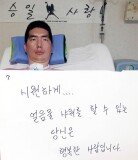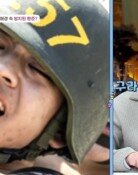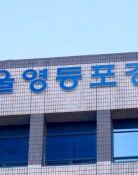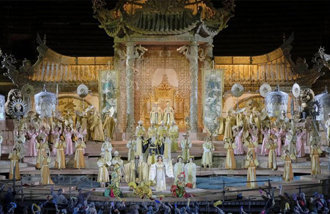[Editorial] Accord Is Precondition for Aid to North Korea
[Editorial] Accord Is Precondition for Aid to North Korea
Posted March. 03, 2007 03:24,
The inter-Korean ministerial level talks, which resumed after a seven-month suspension following North Koreas test firing of nuclear missiles, ended yesterday with the issuance of a six-point joint press release. Although not stated in the press release, the two Koreas have set a date for separated family reunions in return for fertilizer assistance to the North, and both agreed to link South Korean rice aid to initial actions for implementation of the February 13 accord. It seems that such progress was made in response to South Korean peoples criticism against the nations unilateral and unconditional assistance to North Korea.
What was particularly evident in this round of talks was North Koreas flexibility. North Korea, which originally demanded rice assistance within the month, has accepted South Koreas stance that the rice aid be discussed in the 13th Committee for Promotion of Economic Cooperation between South and North Korea, scheduled for April 18-21. The North also agreed to a test running of inter-Korean railways within the first half of this year, even though with conditions of only with military guarantees. All these agreements show that at least ostensibly, North Korea is shifting its policy from brinkmanship to appeasement policy. It is a distinctive change made by North Korea, which threatened the South when it broke up the talks in July last year by saying, The South will pay the price.
This result was possible after South Korea participated in the international communitys cooperation attempt to pressure the North after its nuclear test and missile launch. If South Korea had insisted on its past policy of assisting and appeasing the North while isolating itself from the international community, it could not have achieved even this level of agreement. This is a clear testament to the effectiveness of keeping principle in pursuing a North Korean policy.
However, it is too early to expect that inter-Korean relations will see favorable momentum. So far, North Korea has operated in bad faith in dealing with nuclear issue by accepting only benefits and then reneging on its promises. It remains to be seen, therefore, because no one can be confident that the North would not suddenly change its stance after only receiving South Koreas assistance and having U.S. sanctions lifted by implementing relatively easy initial actions, including a freeze on the Yongbyon nuclear facility.
However, President Roh Moo-hyun expressed optimistic views yesterday in addressing the commencement and commissioning ceremony of the Korea Naval Academy, saying, The February 13 accord has opened up a window of opportunity to resolve the North Korean nuclear issue. However, until North Koreas willingness to dismantle its nuclear program manifests into action, there wont be real peace to the South Korean people who have to live with North Koreas nuclear program literally above their heads. Yesterday North Korea gave a flower named after its leader Kim Jong Il to South Koreas Unification Minister Lee Jae-jeong to celebrate his birthday in Pyongyang. However, it is still hard to trust the good faith that the flower seems to represent.







